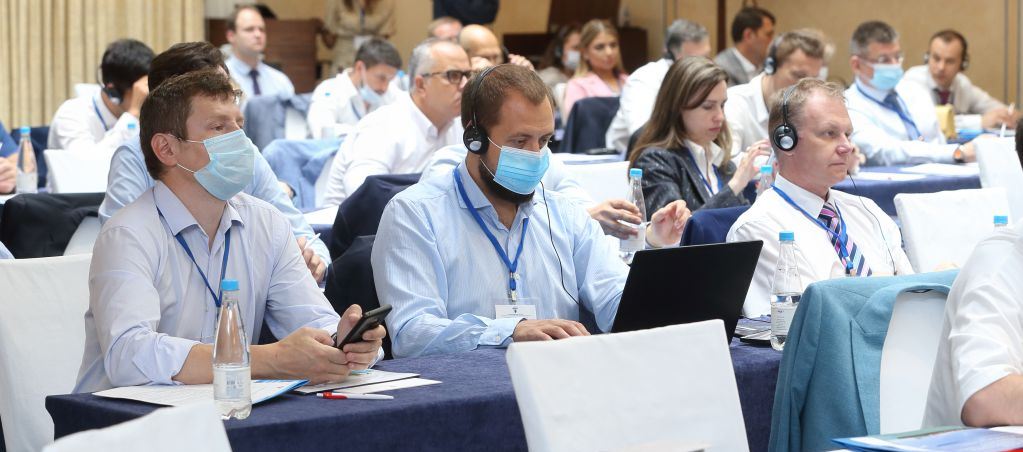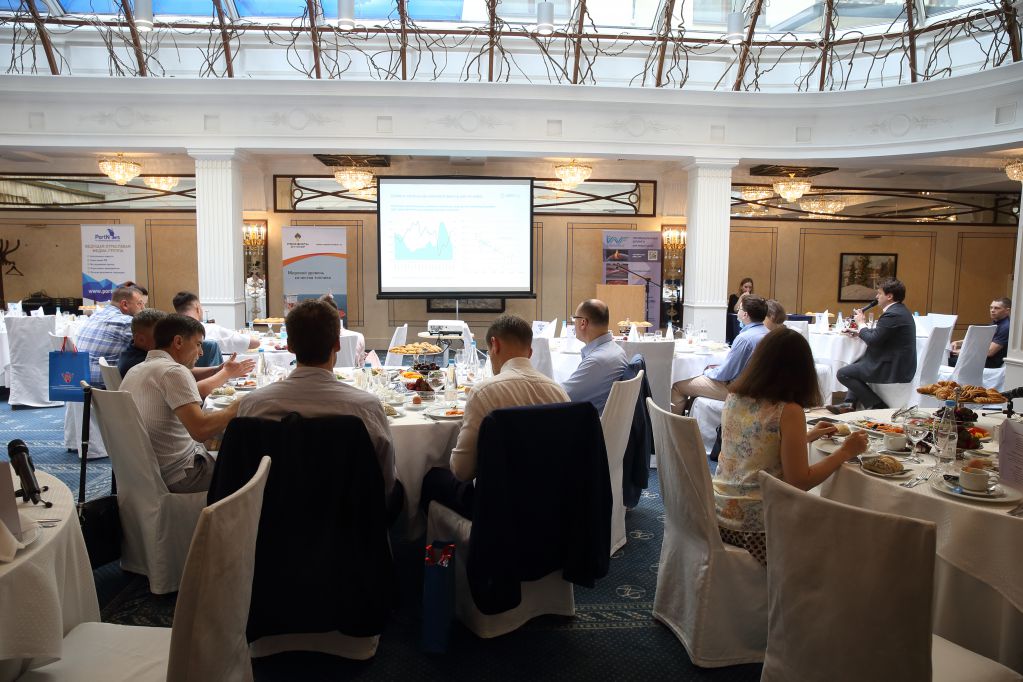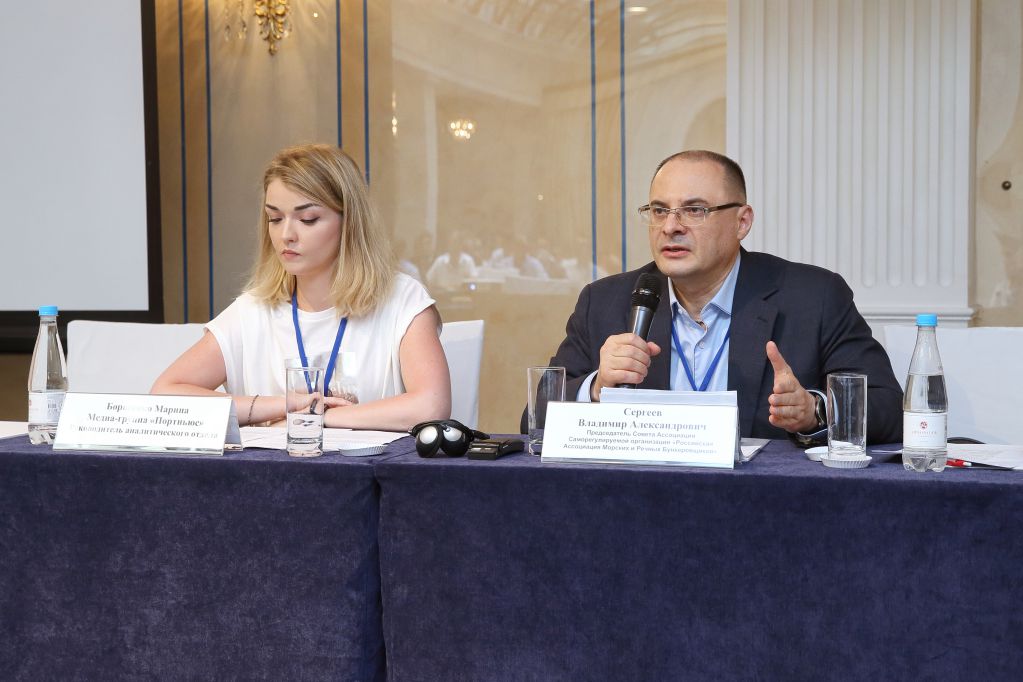
The coming decade will be disturbing for the global bunker market entering a period of transition to the new realities of environmental protection. The related issues of the bunker market were discussed at the 14th All-Russian Forum “Current State and Prospects of Development of the Russian Bunkering Services Market”.
The global bunker market enters a period of transition from the era of conventional fuels to more environmentally friendly and game-changing solutions. When speaking at the 14th All-Russian Forum “Current State and Prospects of Development of the Russian Bunkering Services Market”, Unni Einemo, representative of the International Bunker Industry Association (IBIA), the shipping industry is currently looking for the most optimal solutions of using fuel on ships although this period will feature the prevalence of traditional fuels, primarily VLSFO.
One of the challenges is the diversity of VLSFO. Even high quality fuels offered by different suppliers can have widely different characteristics, hence the need to verify compatibility and quality of fuels offered by different suppliers in different ports.
“VLSFO quality varies a lot from port to port which poses problems for ship owners”, Chris Turner, Global Manager of Bunker Quality and Claims at Integr8 Fuels, said at the Forum.
According to Samir Fernandez, Global Head Commercial Operations, Optimisation and Claims, Maersk Oil Trading, VLSFO requires a more thorough cleaning of tanks and special storage conditions.
As Alexander Beday, Customer Relations Manager at Veritas Petroleum Service, said in his turn, VLSFO preparation process and blending is crucial.

A widespread alternative to VLSFO is using scrubbers. Anders Skibdal, CEO of Danish company PureteQ told the Forum participants about the second generation of that equipment. According to him, scrubbers of the second generation are to pay back over 1-3 years depending on ships (about a year for container ships and up to three years for Capesize ships). Turn-key installation of scrubbers will cost about EUR 2 million with its operation costs estimated at $2.6 per tonne of fuel. Serial production of the second generation scrubbers is to be launched in 2023. Such scrubbers will be able to sequester carbon and produce hydrogen. Besides, it is possible to build scrubbers for ammonia.
The Forum participants also discussed the prospects of using liquefied natural gas (LNG). In Russiam it is currently associated mostly with the construction of an LNG bunkering tanker for Gazpromneft Marine Bunker. The Dmitry Mendeleyev tanker of Arc4 class will have a capacity of 5,800 cbm. It is to be put into operation in 2021. In combination with the LNG terminal KS Portovaya the bunkering ship will let supply liquefied gas to ships in the Gulf of Finland. There is a plan to expand the fleet of LNG bunkering ships by 2030 if there is a demand for them.
Moreover, Russia actively developing Arctic fields can need LNG for the Arctic shipping, especially amid the ban on using heavy fuel oil in the region approved by IMO's Marine Environment Protection Committee in June 2021.
According to data shared at the Forum by DNV GL and Gazpromneft Marine Bunker, the world numbers 206 ships running on LNG as the middle of 2021. 142 more ships have a fuel system prepared for using LNG. 31 specialized bunkering ships are in operation today. 304 ships with gas and dual-fuel engines are under construction as well as 23 LNG bunkering ships. That demonstrates a fast growing demand for this type of fuel.

A detailed report on the current state of the Russian market of bunkering services was delivered by Marina Borisenko, Analytical Department Manager of PortNews Media Group. According to our media group’s data, bunker sales in Russia over the first 5 months of 2021 totaled 2.6 million tonnes, which his 8% less than in the same period of the previous year. The decrease should be attributed to the price environment, quality and compatibility of low-sulphur fuel oil offered by various suppliers, freight market situation leading to a change of logistic schemes and traditional routes.
When it comes to specific Russian problems, special attention should be paid to the national legislation and regulatory base in the industry. It is Russian Association of marine and river Bunker Suppliers that has been actively working on the problem in the framework of the regulatory guillotine. The Association participated in consideration of more than 200 regulatory documents as part of working groups on a regulatory guillotine in the field of water transport and transport security. Such groups have been retained for a regular discussion of further initiatives.
We can summarize that both international and Russian markets of bunkering services are nearing a challenging but interesting era of innovations and uncertainty. Those capable of following the newly shaping trends will be able to win in the long-term.
 By Vitaly Chernov
By Vitaly Chernov
More industry-related content is available on our social media pages: FaceBook, YouTube, Telegram, Twitter, Yandex Zen



